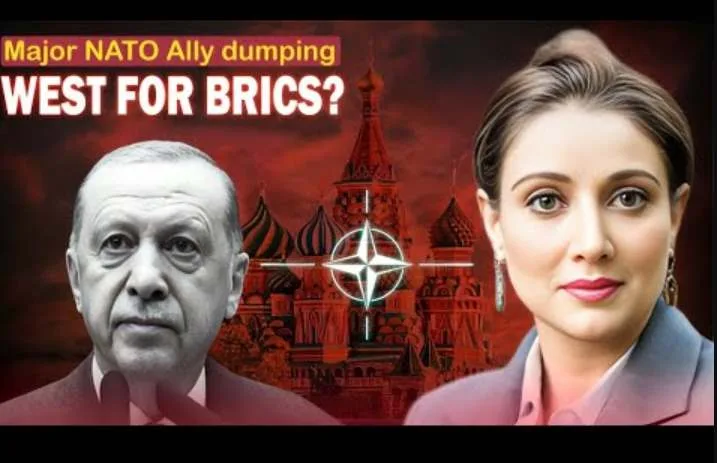This week’s BRICS summit in Russia, the first to include newcomers Iran, Saudi Arabia and Egypt, showcased the growing influence of emerging multipolar world powers. Turkish Foreign Minister Hakan Fidan’s attendance highlighted Turkey’s interest in fostering relationships with BRICS nations and seemingly fueled speculation that Turkey may even consider membership. Such a move would be a notable departure from its previous alliances, accelerated by Turkey’s disillusionment with perceived lack of progress and respect in its pursuit of European Union membership.
The BRICS group notably includes China and Russia, countries currently marred by Western controversies, as well as traditional US allies in the Middle East like Saudi Arabia, UAE and Egypt. The addition of Turkey, a NATO member, would reinforce the potency of the BRICS group as an alternative to post-WWII Western power structures.
The Euroscepticism demonstrated by Turkey is a substantial message to Western countries, particularly in light of the ongoing conflict between Russia and Ukraine and economic tensions with China. This is exacerbated by South Africa’s stance on Israel, which is critiqued by many Western nations. Turkey first signed an Association agreement with the European Community in 1963, and while it was officially recognized as a candidate for EU membership in 1999, its significant political and human rights challenges impeded progress, leading to a suspension of talks in 2018.
Russian Foreign Minister Sergei Lavrov noted that the growth of BRICS signifies the rise of a multipolar world, a viewpoint in stark contrast to the dominance of Western countries. This shift threatens established Western forces, particularly those whose power is sustained by their partnership with the US.
BRICS, an acronym coined by Goldman Sachs for an emerging economy report in 2001, initially consisted of Brazil, Russia, India, and China, and expanded to include South Africa in 2010. The organization has increasingly asserted itself on the global stage, solidifying its potential to disrupt conventional economies and power structures driven by Western countries. The inclusion of Turkey would signify an additional step in this direction and could signal broader destabilizing impacts on Western dominance.
The establishment of an alternative power bloc poses a potential threat to the U.S., UK, and Canada, given their reliance on the current configuration for economic competition, geopolitical influence, strategic alliances, alternative financial systems management, resource control, and technological advancement.
BRICS represents a significant shift in global power dynamics. If Turkey’s bid is successful, it would become the first NATO ally to join the bloc. Turkey’s potential role within BRICS could help to further legitimate its global standing and expand its influence within various international forums.
If BRICS continues to gain momentum and expand its influence, Western nations will need to strategize effectively to protect their interests, while developing nations consider the opportunities that this alternative bloc offers. This complex dynamic no doubt offers a compelling global lens for examining 21st-century geopolitics.
